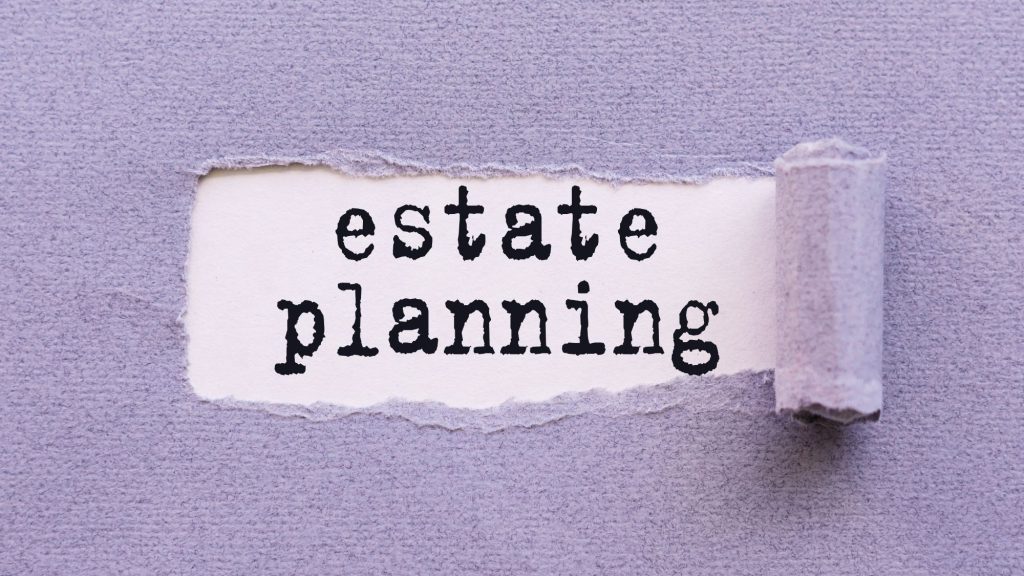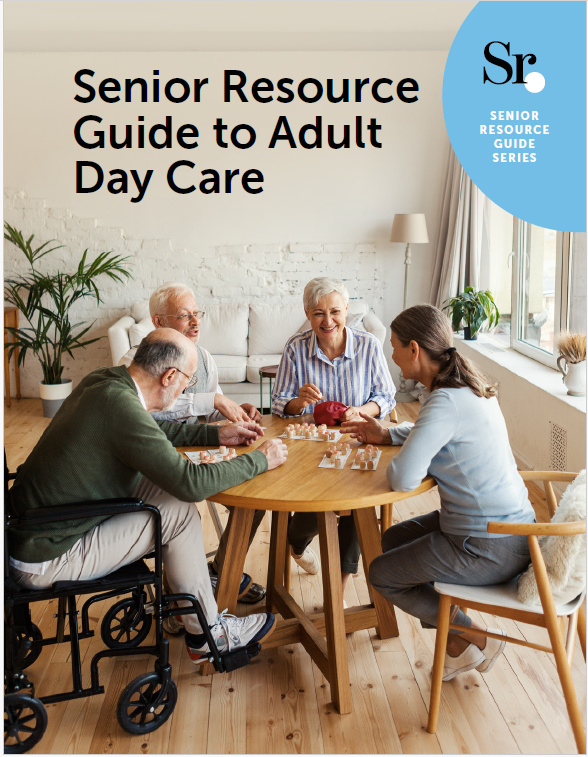The Ultimate Estate Planning Checklist & Guide

Planning for the future is important at any age. But, for seniors, retirees, and family caregivers, a well-thought estate plan is essential. Why? An estate plan ensures your wishes are carried out after you pass away. Without one, your assets may not go to the people or causes you want them to.
Still, a shocking 67% of adults in the US don’t even have a will. Why are so many people without such essential documents in place? Well, for starters, some may feel that they’re just too young and healthy, leaving them plenty of time to plan for the future. Others are depressed at the very idea of facing their own mortality, so it’s easier to pretend there’s no end to prepare for. And then there are the procrastinators who feel that estate planning is way too complicated and overwhelming – full of confusing legal jargon and too many decisions for one person to make.
It’s true. It’s not always easy.
But, having your ducks in a row will not only help you in the long run but your family as well. So, if you’ve been putting it off, now is the perfect time to get familiar with the basics! Read on to learn about all the key parts of an estate plan, where to find more help, and a checklist to help you get better prepared for the process.
What is an Estate Plan & What Should it Include?

What will happen to all of your belongings and money if something happens to you? In a nutshell, that’s what estate planning determines. It’s the process of designating how your assets should be transferred to beneficiaries in the event of your death or incapacitation. Every good estate plan starts with a few integral parts. Here’s what to know:
Will
A will is a legal document that directs how your assets will be distributed after you pass away. It includes details about beneficiaries, how personal belongings should be distributed, and how any assets (home, wealth, businesses, etc.) will be handled. It also indicates your executor – someone who will be responsible for managing all of this as well as making sure debts are paid.
Trust
A trust is a legal arrangement in which you transfer control of your assets to another person or entity to provide long-term asset protection and tax benefits for your heirs. There are different types of trusts for various purposes.
- A revocable living trust is a document that holds your assets that can be changed at any time during your lifetime.
- A testamentary trust holds your assets and becomes effective after your death.
- A spendthrift trust allows a beneficiary to receive money while protecting the assets from their creditors or from irresponsible financial decisions.
- A special needs trust is often used by parents who have a child with a developmental disability. It allows the beneficiary to use the assets in the trust while still receiving essential government benefits.
- A qualified terminable interest property (QTIP) trust is designed to provide financial support for a surviving spouse by paying out income from the trust for the rest of their life. In some cases, payments from the principal may also be made if necessary to support the surviving spouse. Once the surviving spouse passes away, any remaining property in the trust goes to the beneficiaries designated by the original owner.
Power of Attorney
A durable power of attorney (POA) is a document that names someone to act on your behalf if you become incapacitated – like if you become seriously ill or disabled. The POA can be general, which means the named person can do almost anything with your money and other things, or it can be limited, which means the named person can only do certain things. The downside of a limited POA is that it is hard to know what might be needed in the future, and the named person may not be able to help if circumstances change.
Advance Directives, Living Wills, & Medical POA
It’s important to have one or more documents that outline your wishes for medical care if you become unable to make decisions for yourself. These documents can go by different names, but some of the most common ones include a living will, advance medical directive, or medical power of attorney. These are the legal documents that specify your medical care preferences, such as whether you’d like life support or prefer a natural death. Having these in place will ensure that your wishes are followed and can ease the burden on loved ones who might otherwise have to make difficult decisions without your guidance.
Beneficiary Designations
When we talk about estate planning, one term that comes up a lot is “beneficiary.” This basically means any person or organization that will receive money, property, or other benefits from someone who has passed away. Designating a beneficiary is a way to ensure that your assets are distributed according to your wishes and that your loved ones are taken care of. Whether it’s a family member, friend, or charity organization, a beneficiary is someone who will benefit from the benefactor (you).
Other Considerations for Your Estate Plan

When planning for the future, it’s important to consider not just distributing assets but also other end-of-life wishes. There are additional documents and strategies that can be beneficial to you and your family, like purchasing burial insurance or planning for gift-giving. Here are some other considerations for your estate plan to explore.
Lifetime Gifts
Essentially, a lifetime gift is a way for us to transfer ownership of our property to our loved ones while we are still alive. This type of gift is not made with the expectation of death and is a voluntary act of generosity. It can come in many different forms such as money, real estate, or even personal items that hold sentimental value.
Lifetime gifts can offer numerous advantages; some, you may not have even considered. By giving gifts during your lifetime, it allows you to see firsthand how it impacts the recipient and how they handle the responsibility. This knowledge can be invaluable when deciding on the amount of unrestricted assets you provide in your will. Also, these gifts can be beneficial to the recipient immediately, rather than receiving an uncertain amount at some unknown point in the future.
Perhaps the largest monetary advantage of this type of gift-giving is the lifetime gift tax exemption. The exemption is the maximum amount of money or assets that you’re allowed to give away during your lifetime without incurring federal gift taxes. This exemption is adjusted annually and for the year 2023, the limit stands at $12.92 million. Basically, this means that we can generously share our assets with our loved ones without worrying about being taxed on these gifts, up until this specified amount. However, it’s important to keep in mind that this limit can change from year to year.
Charitable Gifts
A charitable gift is a donation of either cash or property that is made to a nonprofit organization without expecting anything in return. These donations are made with the intention of supporting the organization’s goals and helping it achieve its mission. You can choose to give these gifts either during your lifetime or through your will. Because charitable gifts are not made with the expectation of receiving something in return, they are tax-deductible and can offer benefits in reducing our overall tax burden. For many, the tax benefit is greater if the gift is given during their lifetime.
When it comes to charitable gifts and tax deductions, there are some general rules that apply. Typically, you can deduct up to 60% of your adjusted gross income through these donations, which can be a significant benefit. However, you should note that there may be limitations on this deduction depending on the type of contribution you’ve made and the organization you donated to. For example, you could be limited to as low as 20% of our adjusted gross income, depending on the specifics of our donation. It’s always a good idea to consult with a tax professional and IRS.gov when planning to make significant charitable contributions to ensure that you’re maximizing the benefits while also following all of the applicable guidelines and regulations.
Life Insurance
Life insurance can play an important role in your estate plan and can be used in various ways to support your loved ones. The most common use of life insurance is to provide additional financial support to family members. With a life insurance policy, you can ensure that your beneficiaries receive immediate funds that can be used to cover expenses such as lost income, funeral costs, and outstanding debts.
Burial and Funeral Insurance
Burial insurance is a type of policy that can help cover the costs associated with funeral or cremation expenses. It can also be used by the beneficiary to pay off any outstanding debts, such as medical bills, mortgage loans, or credit card balances. If you’re only interested in coverage for end-of-life expenses, then this is a good choice. But, if you’re hoping to provide money to loved ones for things like college tuition or lifestyle maintenance, then life insurance is the better option.
Burial and Funeral Preferences
Within your estate plan, you have the opportunity to clearly outline your preferences for your funeral or memorial service. This includes specifying whether you prefer burial, cremation, or donation of your body, as well as indicating where you want obituaries to be published and any other details about the type of ceremony you envision. Although these preferences may not necessarily be legally binding on your survivors in many states, expressing your wishes can help prevent any uncertainty or disagreements among your loved ones during a difficult time.
Senior Resource’s Ultimate Estate Planning Checklist

It’s important to keep in mind that the primary goal of estate planning is to protect both yourself and your loved ones. Regardless of your age or financial situation, having a comprehensive estate plan is essential. By using this detailed checklist, you can be sure that your estate plan is complete and up to date. The worst mistake you can make with estate planning is simply failing to take action. Without even a basic will in place, the state will determine how your property is distributed upon your passing. One way to address this challenge is to approach estate planning incrementally, using the checklist below as a guide. Start by putting together a simple, basic estate plan now and then continue to refine and improve it over time. This way, you can ensure that your estate plan remains current and reflects your evolving priorities and needs.
1. Locate and Gather Important Documents
Store important documents in a secure location such as a safe or safety deposit box. It’s equally important to inform your family members, executor, and trustees of the location of these documents and the steps needed to access them. This ensures that your loved ones are able to carry out your wishes and properly execute your estate plan in the event of your passing. Documents you need to have secured are:
- Birth certificate
- Marriage license
- Health care documents like your advance directive or living will
- Tax returns
- Bank statements
- If you use online banking, include your username and password for access
- Investment account statements
- If you manage investment accounts online, then include your username and password for access
- Insurance policy information
- A copy of your policy
- Where to access insurance company info online
- Real estate titles and deeds
- This includes the property where you live and any other properties you own such as rentals
- Share certificates
- Last will and testament
- Power of attorney
- Healthcare directive
- Trust agreements
- Vehicle titles
- A list of recurring bills
- This includes bills like loans, mortgages, and credit cards
- Include with your list usernames and passwords to access all of these accounts online
- A list of assets
- A list of social media accounts
- Include usernames and passwords for all accounts, accompanied by instructions on how you’d like the accounts memorialized after your passing.
2. Keep Track of Assets
Maintain an updated list of all of your assets, including their location. This list should be shared with both your spouse and named executor. When making this list, consider every asset you own:
- Homes
- Land
- Real estate
- Vehicles
- Collectibles
- Jewelry
- Artwork
- Personal possessions
- Bank accounts
- Retirement accounts
- Annuities
- Investments
- Insurance policies
- Savings accounts
- Businesses
- Digital assets
- Include usernames and passwords for all accounts
3. Create a Will, Review Often, & Update as Needed
A will is one of those things that can easily slip to the bottom of your to-do list. But, don’t let it! Drafting a will is way simpler and more affordable than you might think. Seriously, it’s usually the easiest document among all those fancy estate planning papers.
When creating a will, you need to ensure that all of your property is accounted for and that your beneficiaries are identified by name. Your will should also designate an executor and provide alternative options in case the executor cannot serve for any reason, such as death. It’s also important to make sure that your chosen executor is fully prepared and willing to serve. Don’t forget, your will must be signed in the presence of witnesses (the number of witnesses required varies by state).
If you’ve already got a will, you should be reviewing it at least every three years, or whenever life throws you a curveball – like births, marriages, divorces, you name it. Take a look back at what you wanted the last time you reviewed it and ask yourself, “Do I still feel the same way?”
4. Create Your Advance Directive, Living Will, or Medical POA
In the event that you become incapacitated and have not named someone to act as your medical care POA, a court could select someone to make decisions on your behalf. To avoid having an unknown or untrusted person make healthcare choices for you, it is absolutely essential to have an advance healthcare directive in place.
Your advance directive allows you to name one or more people to manage your medical treatment if you are unable to do so. This document can also outline your care preferences and specify which types of life-prolonging medical treatment you want (or don’t want) if you become critically ill or are unable to communicate your wishes. You can also state your wishes for organ donations, disposition of remains, and more.
Here are some considerations for the person you choose as your medical POA:
- They should be a close family member or friend who knows you well.
- They should be aware they’re being chosen.
- Must be available and reliable, especially in an emergency.
- They should understand your wishes and be able to communicate them to your doctor.
- Your medical POA should be a strong advocate for you, even when facing conflicting opinions from others.
5. Financial Power of Attorney
A financial power of attorney is a legal document that authorizes a trusted person to act on behalf of you in financial matters. This means that if you are unable to manage your finances due to incapacity or other reasons, that designated individual can step in and handle your financial affairs according to your wishes. This could include paying bills and making bank deposits, among other things
6. Select Beneficiaries
This is who will inherit your assets upon your death. Naming beneficiaries is a crucial aspect of estate planning because it ensures that IRAs and other qualified retirement plans, annuities, and life insurance policies go straight to the right person and avoid probate.
7. Work on Strategies to Avoid Probate
Probate is a legal process that occurs after you pass away. Basically, a court supervises the distribution of your assets and ensures that debts and taxes are paid. The vast majority of estates must go through probate court when a person dies. Since the process is generally long and drawn out with high fees, many people make it an estate planning goal to avoid it as much as possible. Here are a few ways you can plan to bypass probate:
- Living trusts, also known as revocable living trusts, offer a means of transferring assets to the next generation while avoiding probate. One of the primary benefits of a living trust is that it can be modified or revoked at any time during the owner’s lifetime. This flexibility can be particularly useful if circumstances arise that affect the trust’s structure, such as a beneficiary passing away or changes in relationships between parties.
- Consider joint ownership of a property. If one of the two people dies, the ownership automatically transfers to the surviving owner.
- A payable-on-death account is a bank account where the client designates a beneficiary who would receive all of the funds in the account after the owner’s death. Assets from this type of account are immediately transferred to the beneficiary upon your death, therefore eliminating the need for probate.
- In some states, a small estate affidavit is an option to avoid probate. It’s a sworn statement saying that the value of all of the assets falls below a certain amount. This allows beneficiaries to collect and distribute an estate’s assets without going through probate court. Every state has a different definition of what qualifies as a small estate, but it’s usually worth investigating where you live.
8. Consider Life Insurance
Ultimately, the right type and amount of life insurance for you will depend on your individual circumstances and goals. If you’re considering getting a policy, there are a few things you should keep in mind to determine the right type and amount of coverage for you.
Consider your financial obligations and the needs of your dependents. Think about things like mortgage payments, debts, education costs for your children, and other expenses that would need to be covered if something were to happen to you. A general rule of thumb is to have coverage that is at least 10-12 times your annual income (but, again, this can vary depending on your specific circumstances).
When it comes to choosing a policy, there are two main types:
- Term life insurance provides coverage for a specific period of time (usually 10, 20, or 30 years). It’s generally more affordable and can be a good choice if you only need coverage for a certain amount of time.
- Whole life insurance provides coverage for your entire life and also builds cash value over time. It’s typically more expensive but offers lifelong coverage and can be a good investment for some people.
9. If You Own a Business, Create a Succession Plan
This is so important because a good plan will ensure that your company will continue to thrive even after you step down or pass away. It can also help to preserve the legacy of your business and provide clarity for your employees, customers, and stakeholders. Without a succession plan in place, there can be confusion and chaos when it comes to transferring ownership and management responsibilities.
10. Leave Letters of Instruction
Create a letter of instruction for your executor and family. This letter can provide valuable information about all of your financial accounts, insurance policies, credit cards, vehicle loans, mortgages, and other important assets. It should also include important contact information for your relatives and friends so that they can be notified of your passing. You can also use the letter to specify your wishes for burial, cremation, funeral ceremonies, and organ donation.
It’s important to note that a letter of instruction is not a legally binding document, but it can still be a helpful tool in ensuring that your wishes are carried out as you intended.
11. Reassess Your Estate Plan
If there has been a change in any one or more of the following items since the last review of your plan, then it is time for an update!
- The marital status of yourself or any of your family members (i.e. marriages or divorces)
- The birth or adoption of any children or grandchildren
- A new serious illness or disability
- Changes in your support system
- New debts
- Your life insurance policy was changed
- The value of your estate
- Moving/relocating
Where to Find Help for Your Estate Plan

Estate planning can feel like a complex and overwhelming process, especially if you’re not familiar with the legal aspects involved. Luckily, there are plenty of resources available to help you! Here are some ways to get the help you need:
1. Hire an Estate Planning Attorney
Estate planning varies from person to person, depending on the complexity of their estate. An estate planning attorney can provide valuable legal advice and guidance for creating a plan that works for your specific needs.
2. Use Online Tools
There are many resources available on the internet that can help you with estate planning, including free or low-cost templates, online websites that provide estate planning assistance, and blogs and articles written by knowledgeable estate planning professionals.
Pro tip – most businesses understand the value of content creation around their brand and services. If you do a simple internet search for estate planning attorneys and/or your specific questions, click on the search results for local attorneys. Chances are, their business website will include a blog written by lawyers and interns within that practice. Free legal advice? Yes, please!
3. Hire a Financial Advisor
A financial advisor can provide valuable guidance and expertise when it comes to estate planning. They can review your current assets, liabilities, and insurance coverage to help you determine the best way to protect and manage your wealth.
Need More Help?

Here are some more places you can look to for help!
Elder Law Attorneys and Information For Seniors & Retirees
Click here to learn about estate planning.
A Checklist of What to Do When a Loved One Dies
Popular Articles About Elder Law
Originally published January 22, 2024








